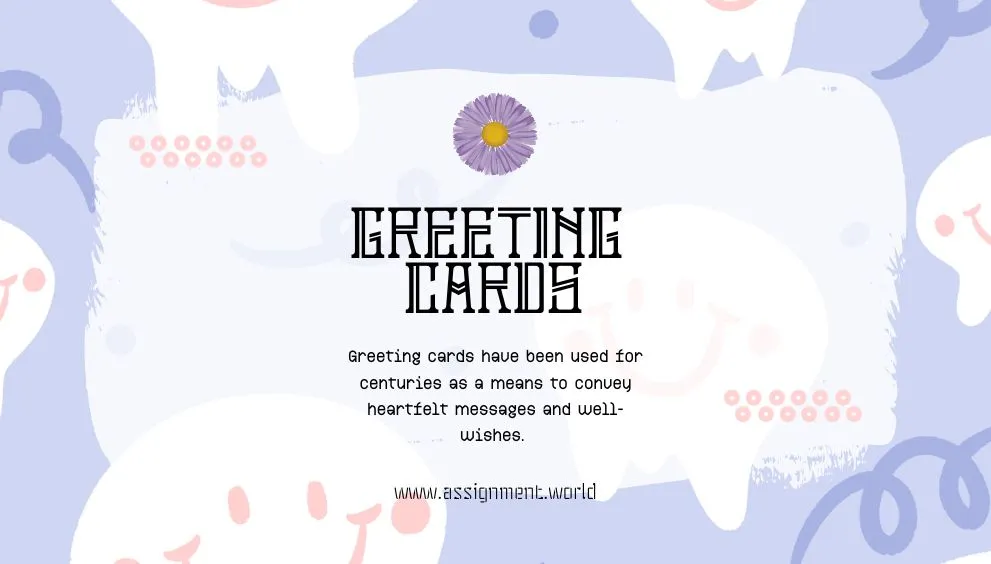Examining the Global Appeal and Adoption of Group Cards

In an increasingly digital world, the act of exchanging physical greeting cards may seem like a fading tradition. However, group cards, which are collaboratively created by a group of individuals to celebrate a special occasion or express collective sentiments, have witnessed a surge in popularity across the globe.
This article delves into the global appeal and adoption of group greeting cards, exploring their significance, benefits, and the reasons behind their enduring charm.
The Evolution of Greeting Cards
Greeting cards have been used for centuries as a means to convey heartfelt messages and well-wishes. Initially, they were individually crafted and exchanged between two individuals. However, with the advent of technology, group greeting cards have gained momentum, allowing multiple people to contribute their thoughts, memories, and wishes in a single card.
The Significance of Group Greeting Cards
Group greeting cards hold immense sentimental value. They provide an opportunity for diverse individuals, such as friends, family members, colleagues, or classmates, to come together and collectively express their appreciation, love, support, or congratulations for a particular person or event. These cards act as tangible keepsakes that capture the essence of a shared connection or a momentous occasion.
Global Adoption and Cultural Significance
Group cards have gained widespread adoption across different cultures worldwide. Their popularity can be attributed to several factors:
Celebration of Milestones
Group greeting cards are commonly used to commemorate significant milestones such as birthdays, weddings, graduations, retirements, and anniversaries. Regardless of cultural differences, these joyous occasions provide a universal platform for people to unite and express their shared happiness.
Cultural Festivals and Holidays
Group greeting cards play a pivotal role during festivals and holidays, serving as a means to convey warm wishes and blessings. Whether it’s Christmas, Diwali, Hanukkah, Eid, or New Year’s, these cards facilitate the exchange of goodwill and strengthen social bonds.
Workplace Recognition
In professional settings, group cards are often used to acknowledge achievements, promotions, or farewells. Such cards create a sense of camaraderie among colleagues and foster a positive work environment.
Social Events and Community Gatherings
Group cards have become a popular feature in social events and community gatherings. Whether it’s a baby shower, housewarming party, or farewell get-together, these cards allow attendees to collectively express their well-wishes and create lasting memories.
Benefits of Group Greeting Cards
The appeal of group greeting cards lies in their inherent benefits:
Emotional Connection
Group cards enable individuals to join forces in celebrating or supporting someone. The collective effort and shared sentiments foster a strong emotional connection, reinforcing relationships and making the recipient feel cherished.
Personalization and Creativity
The collaborative nature of group greeting cards allows for a greater degree of personalization and creativity. Each contributor can add their unique touch, such as personalized messages, artwork, photographs, or anecdotes, resulting in a truly special and meaningful card.
Tangible Keepsake
Unlike digital greetings that can be easily forgotten or deleted, group greeting cards provide a tangible keepsake that can be cherished for years to come. They serve as a constant reminder of the love, support, and memories shared by a group of individuals.
Technological Facilitation
The rise of online platforms and digital tools has made the creation and distribution of group greeting cards more accessible and convenient. Virtual collaboration tools, such as shared digital platforms or social media groups, enable contributors from different locations to participate in the card-making process, overcoming geographical barriers.
Environmental Considerations
While group greeting cards hold sentimental value, it is important to address the environmental impact associated with their production. Traditional paper-based greeting cards contribute to deforestation and waste generation. However, the increasing awareness of sustainability has led to the emergence of eco-friendly alternatives. Many people now opt for recycled paper, plantable cards embedded with seeds, or digital group greeting cards to minimize their environmental footprint while still maintaining the essence of collective expression.
Social Media and Digital Platforms
In the digital age, social media platforms have revolutionized the way people connect and share greetings. Online communities and groups dedicated to specific occasions or interests provide a platform for individuals to collaborate on group cards digitally. These platforms offer features such as photo sharing, virtual signatures, and customizable templates, making it easier than ever to create and distribute group greeting cards to a wide audience.
Cross-Cultural Influences
The global appeal of group cards has also been influenced by cross-cultural exchanges. As people migrate, travel, or engage in multinational relationships, they bring with them their traditions and customs. This cultural exchange has led to the adoption of group cards in various regions, resulting in a rich blend of practices and designs.
Conclusion
Group greeting cards continue to hold a significant place in our lives, transcending cultural boundaries and embracing the power of collective emotions. Their global appeal lies in their ability to celebrate milestones, foster emotional connections, and provide tangible mementos of shared experiences. As we navigate an increasingly digital world, the enduring charm of group cards reminds us of the value of human connection and the joy of coming together to express our collective sentiments.





